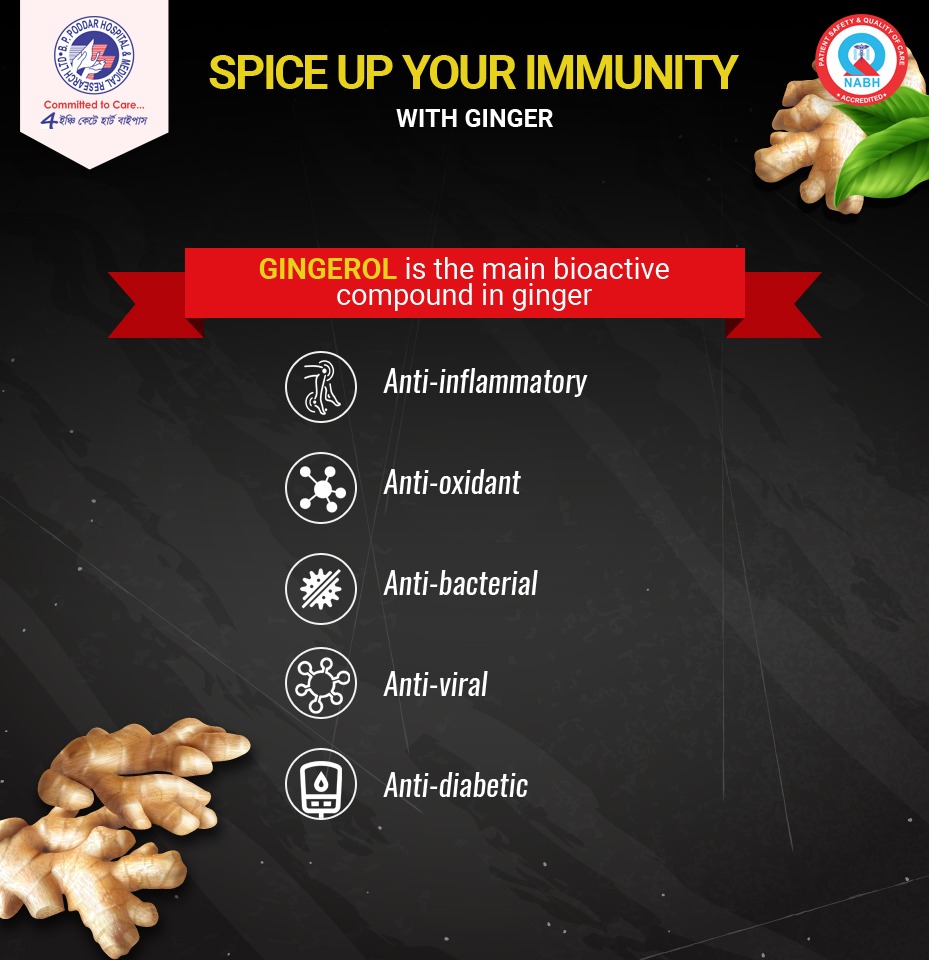
Ginger and the winter season have the best equation. On cold morning days, a cup of ginger tea is an absolute pleasure to soothe your throat. Ginger is also known as Adarak in Hindi, is one of the healthiest spices on the earth. The ginger spice comes from the roots of the plant. Ginger is a plant with leafy stems and yellowish-green flowers.
Ginger is a perennial plant scientifically known as Zingiber officiale Roscoe. It belongs to the Zingiberaceae family contains essential oils and resins. It provides a specific odor and spicy flavor. It is a popular home remedy for nausea, stomach pain, and other health issues.
Ginger has been used now for more than 2,500 years. This plant originated in Southeast Asia. It is cultivated now throughout the humid tropics, with India being the largest producer. Now it is growing in China, Japan, parts of South American, and Africa.
Ginger may have various properties such as anti-inflammatory, antibacterial, anti-viral, and other healthful properties. Below are some benefits of ginger-
Ginger is beneficial to reduce nausea and vomiting. It helps lower nausea through a direct effect on the stomach rather than on the central nervous system. Research suggests that ginger may help reduce nausea and vomiting caused by drugs used to treat HIV infection. It also treats nausea due to vertigo, nausea after surgery, and vomiting from chemotherapy. ÂÂ
A cup of hot ginger tea is the famous solution that may reduce your cough and cold instantly. The ginger contains compounds gingerol and shogaol may help fight off a cold because they can lower a fever, reduce pain, and suppress a cough. ÂÂ
Research suggests that ginger has a warm effect that may help reduce cold and cough symptoms. In 2013, the researcher concluded that fresh ginger beneficial for respiratory infections. ÂÂ
Ginger has antioxidant properties that help reduce the free radicals in the body that may cause obesity. It contains gingerol and shogaol compounds that may contribute in various biological activities in the body. Research suggests that gingerol has anti-obesity properties that help food to digest faster and stimulate the body to speed digested food through the colon.
Ginger may help to reduce menstrual cramps by lowering the contractions of your uterus. According to the studies, taking ginger powder 500-2000 mg during the first 3-4 days of a menstrual cycle decreases pain in women and teens with painful menstrual periods. ÂÂ
Some studies suggest that consuming ginger during pregnancy may reduce the morning sickness symptoms such as nausea and vomiting. However, taking any herb or medication during pregnancy is a big decision. Before taking ginger, be sure to discuss the possible risks with your doctor. ÂÂ
In Ayurveda, ginger is a highly recommended hair growth treatment. It contains various minerals and fatty acids that help in hair thickening and encourages hair growth. Ginger also has natural antiseptic properties that help to prevent dandruff formation. ÂÂ
Ginger contains anti-inflammatory properties that help to reduce joint pains like hip and knee joint pain. ÂÂ